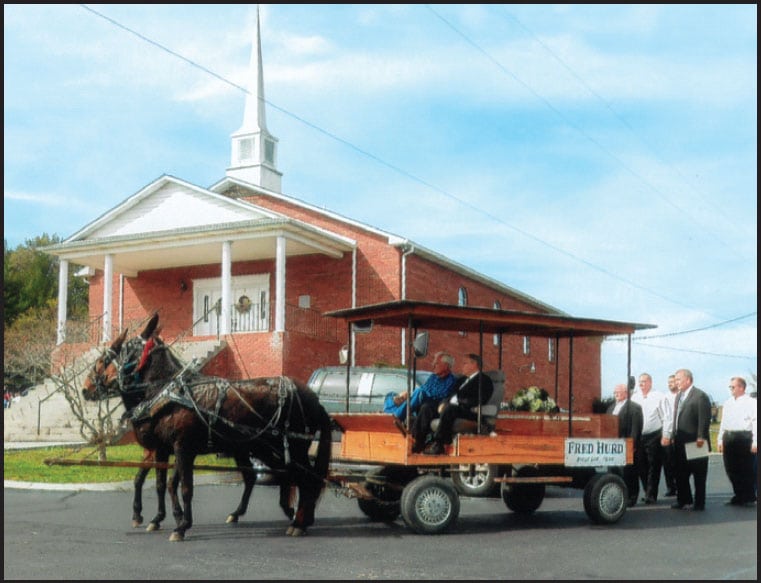Remains of state’s first Baptist minister and his family are reinterred at Whitesburg in East Tennessee
Count me among the tons of Tennesseans who admire writer Bill Carey for his relentless efforts to keep the rich history of our state alive among folks of all ages — including thousands of elementary and high school students — who really need to know about such things.
As a 78-year-old former editor of The Tennessee Magazine who was born and raised in the quiet and friendly little town of Whitesburg in East Tennessee, I look forward to every installment of Bill’s “History Lesson” series in this treasured publication. But it was his wonderful “Revolutionary War veterans buried all over Tennessee” feature in the July 2017 issue that hit home in a special way.
I grew up attending services at Whitesburg Baptist Church, an imposing, historic, two-story brick building that still stands right on the edge of busy Highway 11-E. I learned early on that ours was one of the oldest Baptist churches in the state and that it was founded by Tidence Lane, who was buried in a small cemetery, along with a few other family members, just outside of town.
Though Bill Carey didn’t mention him in his “History Lesson” column in July, I knew, too, that Rev. Lane was a Revolutionary War veteran. That was one of the things we learned as grade-schoolers at Whitesburg when teachers took us to the little graveyard on field trips.
Tidence Lane was born Aug. 31, 1724, to Richard and Sarah Lane in the Province of Maryland near the city of Baltimore. He eventually migrated with his family to Tennessee where, in 1785, he founded Bent Creek Baptist Church, the forerunner of Whitesburg Baptist, where I grew up. That founding made Tidence Lane “the first pastor of any congregation of any denomination in the state of Tennessee,” according to an article in the Oct. 25 edition of Baptist and Reflector, a widely circulated biweekly publication of the Tennessee Baptist Mission Board in Franklin.
But what got me really stoked about reviving my “As I Was Saying” column for this special installment was a large envelope of pictures, newspaper clippings and other informational pieces I received a few weeks ago from good friends Louise and Coy Wisecarver of Whitesburg.
Louise and Coy — members of Holston Electric Cooperative — had attended a sacred and solemn ceremony at which the remains of Tidence Lane, his wife and several other family members were reinterred after having been removed from the historic family cemetery just outside of town.
“It was such a nice service,” Louise told me when I called to thank her for the materials. “Coy and I were both impressed by how solemn and touching the program was. I’m so glad a good crowd turned out for it.”
The Wisecarvers also had high praise for Rev. Richard Long, a Whitesburg native who, in fact, is the great-great-great-great-great-great-grandson of Rev. Capt. Tidence Fuller Lane Sr. and his wife, Esther Bibber Lane.
“Richard has done so much work on compiling the history of Tidence Lane, his family and their contributions to the Baptist history in this part of our state,” Louise told me, “and he did a wonderful job in addressing the gathering at the service.”
In his remarks, Rev. Long, pastor of Brown Springs Baptist Church in Mosheim, said, “Rev. Tidence Lane Sr. organized Bent Creek Baptist Church on a Sunday morning in June 1785 by standing on a log across the headwaters of Bent Creek to deliver his message of institution.”
Anytime you’re in East Tennessee, try to stop by First Baptist Church of Whitesburg and visit what might be one of the most significant little cemeteries in our state, especially if the history of the Baptist denomination is meaningful to you. It’s just off Highway 11-E. Just look for the church sign.
I’ll be heading that way as soon as I can!



